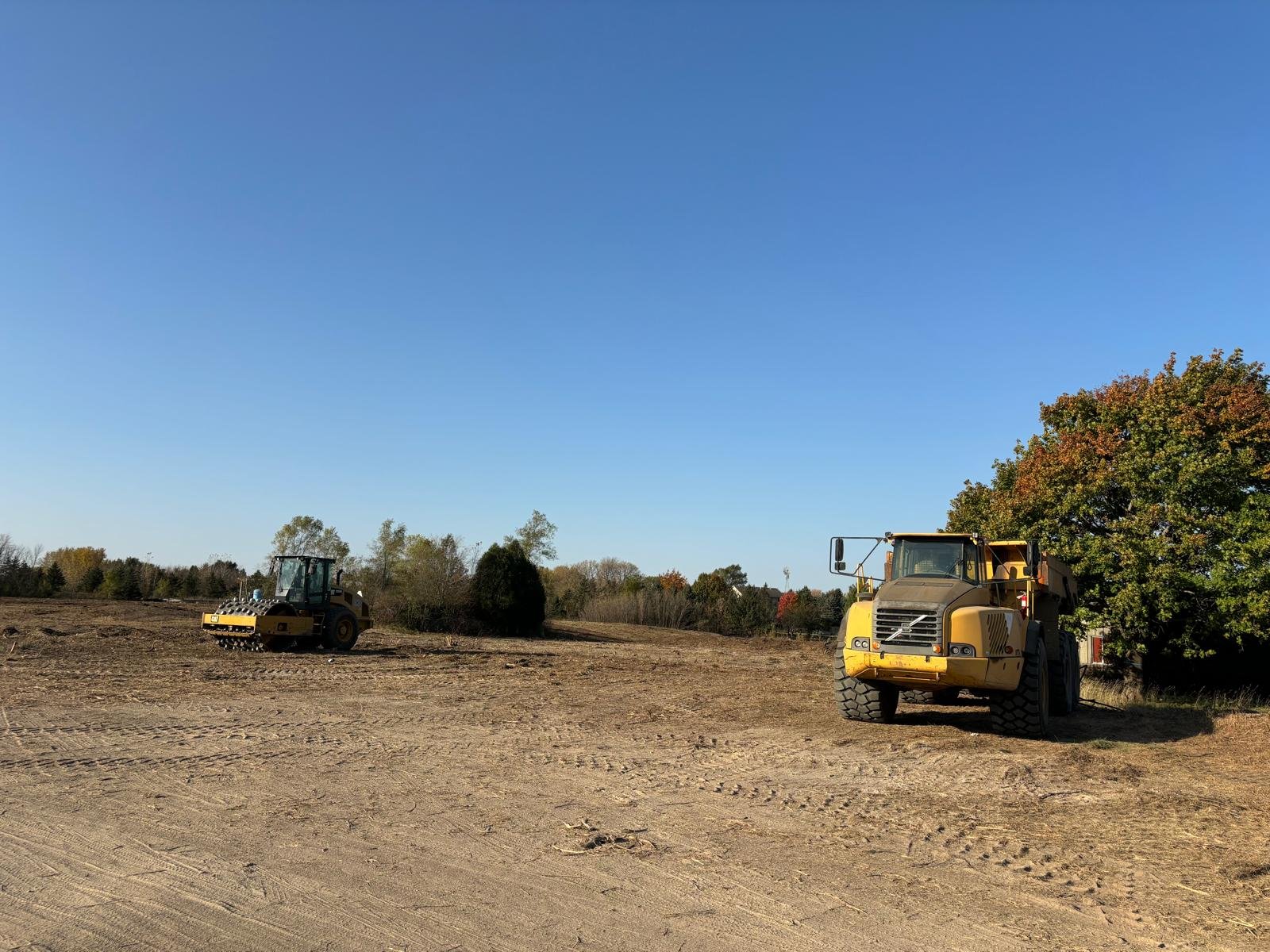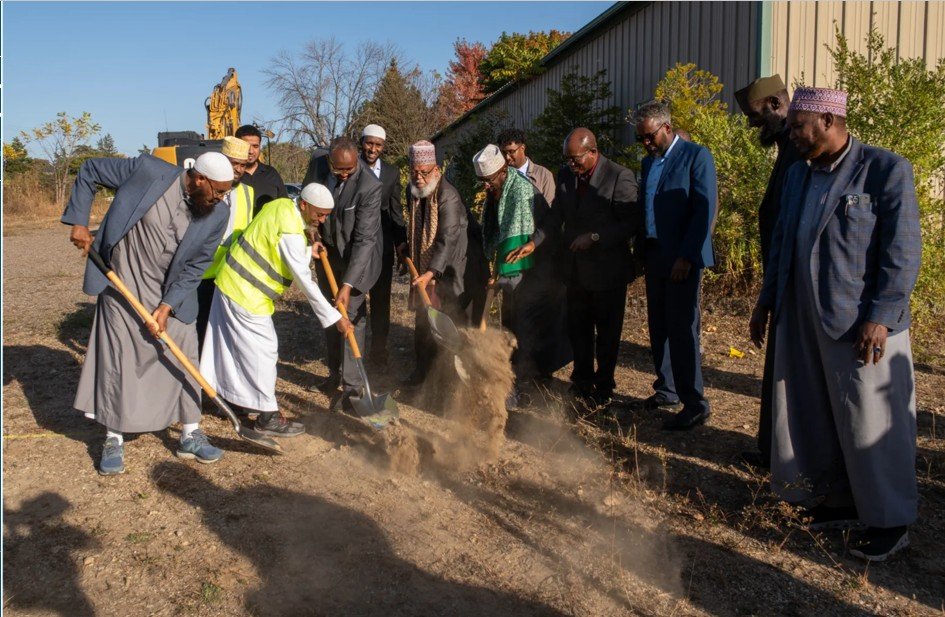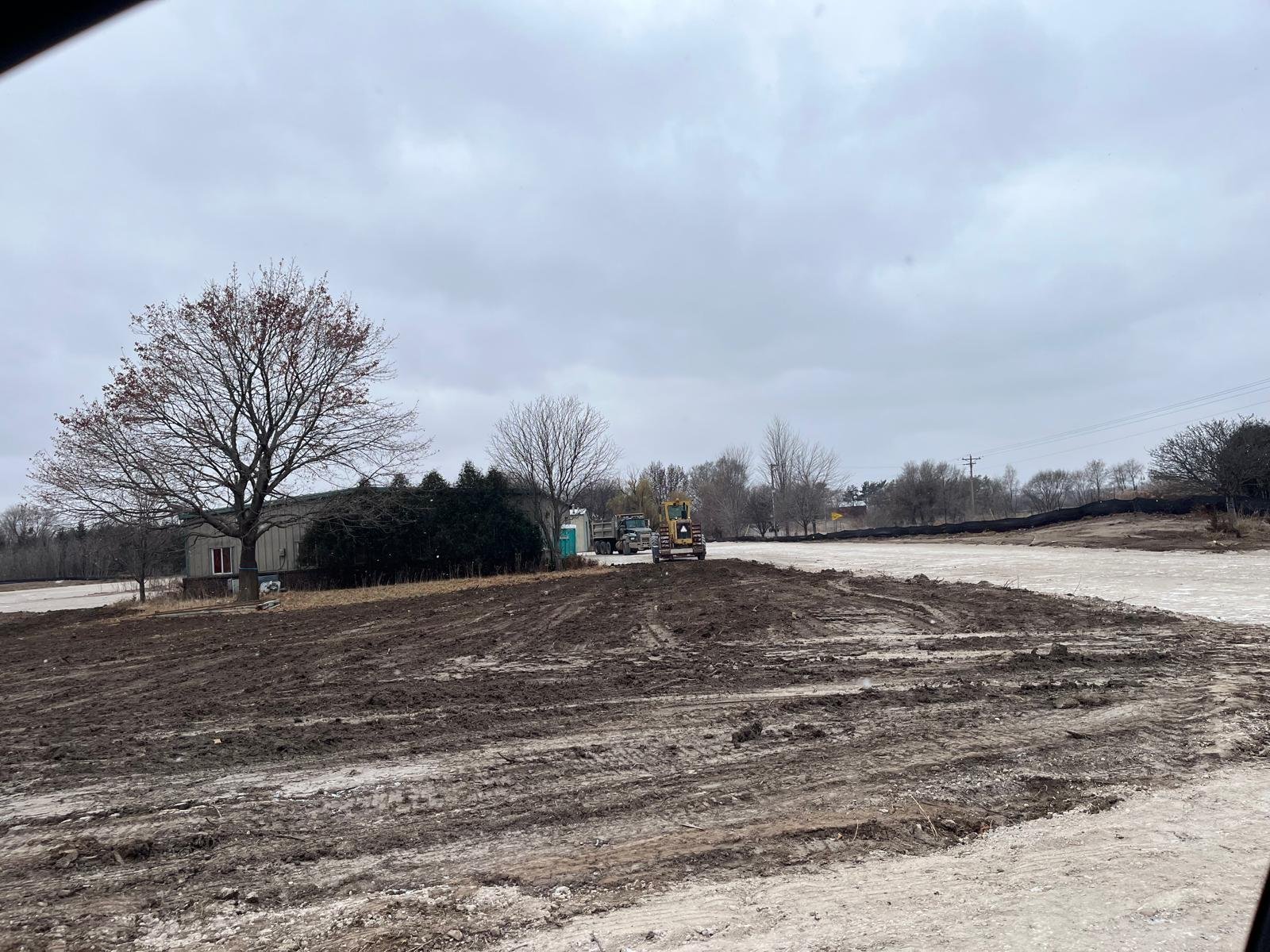6/11/25 - Asphalt Base Paving & Pond Work Schedule
Things are moving along well, Alhamdulillah — final paving will be scheduled after the pond work is done.
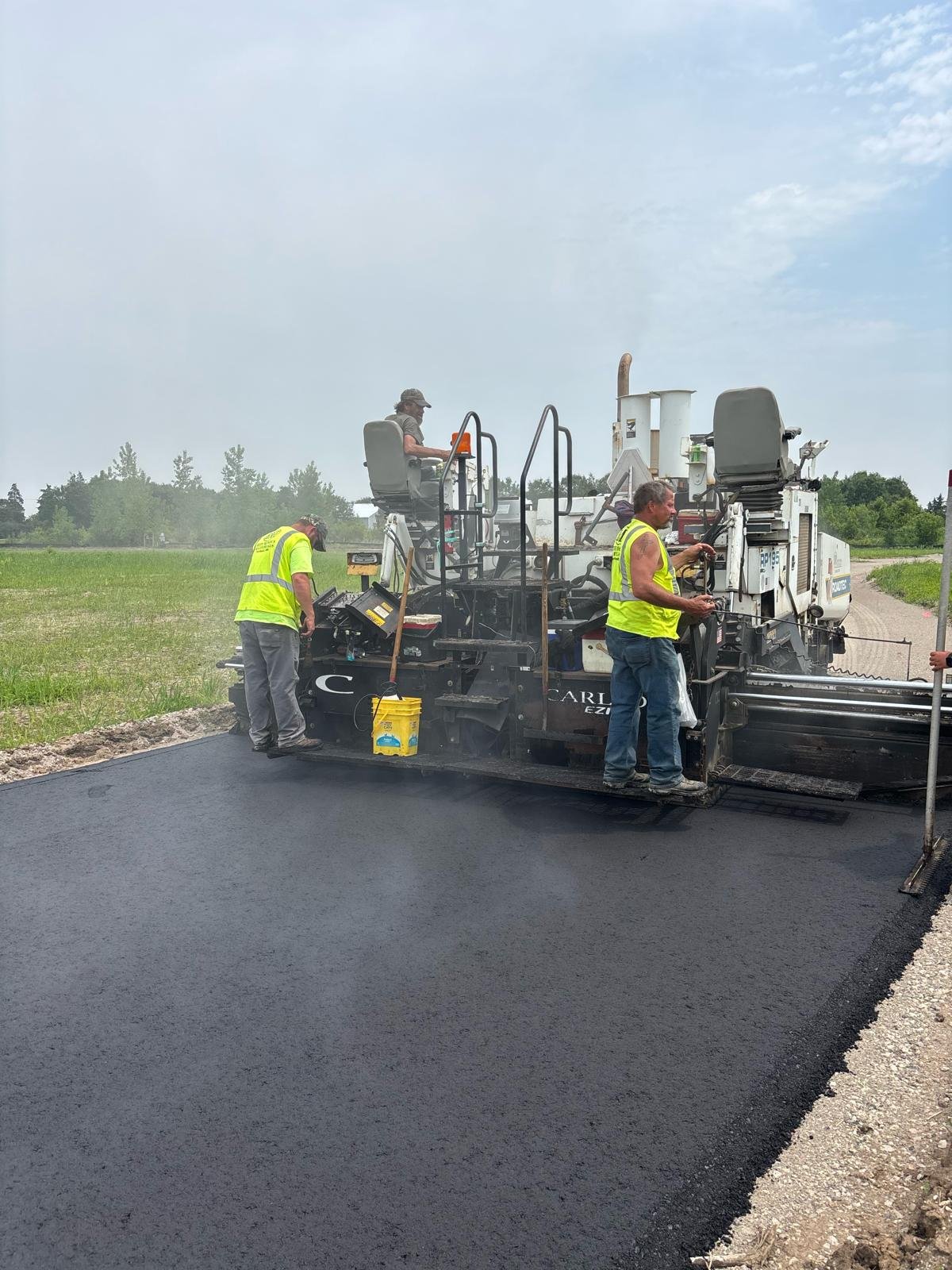
Translation:
Indeed to Allãh do we belong and to Him we shall return.
(Sũrah alBaqarah Verse 156, Sahĩh Muslim 918)
Abũ Hurayrah t narrates that the Prophet s has mentioned:
Translation:
“Visit the graves for they will remind you of the hereafter.”
(Ibn Mãjah 1596, Nasaĩ 2034)
The Prophet Muhammad s taught the following words as salutation to the people of the graves and a prayer for their forgiveness:
Translation:
Peace be upon you oh dwellers of the graves, among the believers, and Muslims, and we shall be joining (you) Allãh willing. I seek well-being from Allãh for you and us.
(Sahĩh Muslim 975)
1. Like other prayers, facing the Qiblah is a necessary condition. The Imãm should advise the people to straighten the rows.
2. Niyyah (Intention): Making intention is necessary for the Janãzah Salãh just as it is necessary in other prayers. Before beginning the prayer, the intention should be made in the heart that one is performing the Janãzah Salãh for Allãh behind the Imãm.
3. First Takbĩr (Takbĩr Tahrĩmah): The hands are raised up to shoulder level with the fingers stretching to the earlobes and the Imãm says “Allãhu Akbar” loudly and the congregation softly. The hands are then folded under the navel, right hand over left like all daily Salãh.
4. Sũrah alFãtiha or Thanã: After the Imãm has initiated the Salãh, the person should recite either Sũrah alFãtiha or Thanã softly:
Translation:
Praise be to Allãh, the Lord of the universe. The most Gracious, the most Merciful. Master of the Day of Judgement. You alone we worship, and [from] You alone we ask for help. Guide us [to] the straight path. The path of those on whom you have bestowed your grace, not of those who earned [your] wrath, nor of those who have gone astray.
(Sũrah alFãtiha)
Translation:
Glory be to You Oh Allãh, praise be to You, blessed is Your name, and exalted is Your Majesty, and there is none to be served besides You.
5. Second Takbĩr: The Imãm will say the second Takbĩr and the congregation should follow. One should not raise the hands.
After the second Takbĩr the person performing the Janãzah Salãh should recite Durũd softly. It is preferable to read the Durũd Ibrahĩm, which is recited in Tashahhud.
Translation:
Oh Allãh! Shower Your mercy upon Muhammad s and the followers of Muhammad s as You showered Your mercy upon Ibrahĩm u and the followers of Ibrahĩm u. Indeed, You are Praiseworthy, Glorious. Oh Allãh! Shower Your blessings upon Muhammad s, and the followers of Muhammad s as You showered Your blessings upon Ibrahĩm u and the followers of Ibrahĩm u. Indeed, You are Praiseworthy, Glorious.
6. Third Takbĩr: The Imãm will say the third Takbĩr and the congregation should follow. One should not raise the hands. The congregation should then recite the appropriate Du’ã.
Translation:
Oh Allãh! Forgive those of us that are alive and those of us that are dead; those of us that are present and those of us who are absent; those of us who are young and those of us who are adults; our males and our females. Oh Allãh! Whomsoever You keep alive, let him live as a follower of Islam and whomsoever You cause to die, let him die a Believer. Oh Allãh! Do not deprive us of his reward and do not allow us to go astray after him.
Translation:
Oh Allãh! Make him/her (this child) a source for our salvation and make him / her a source of reward and treasure for us and make him / her an intercessor for us and one whose intercession is accepted.
Translation:
In the name of Allãh, the most Beneficent, and the most Merciful.
Translation:
In the name of Allãh, with the help of Allãh, and on the religion of the Messenger s.
(Jãmi’ alTirmidhĩ, 1046)
Translation:
“The Messenger of Allãh s offered the funeral prayer, then he came to the grave of the deceased and scattered three handfuls of earth from the side of the (deceased’s) head.”
(Ibn Mãjah 1565)
First handful:
From it (the earth) We created you,
Second handful:
and into it We will return you,
Third handful:
and from it We will extract you another time.
(Sũrah Tãhã, Verse 55)
Translation:
“When the Prophet s had finished burying a deceased person, he would stand over him and say: “Pray for forgiveness for your brother, and ask that he be made steadfast, for he is being questioned now.”
(Abu Dawud 3221)
Translation:
“Do not abuse (speak ill of) the dead, because they have attained that which they had forwarded, (i.e., their deeds, good or bad).”
(Sahĩh alBukhãrĩ 6516)
Translation:
The Messenger of Allãh s went out one night, so I sent Bãrĩrah to follow him and see where he went. She said, “He went towards Baqĩ alGharqad (the cemetery in alMadĩnah alMunawwarah), and he stood at the bottom of alBaqĩ and raised his hands, then he went away.” Bãrĩrah came back to me and told me, and when morning came, I asked him about it. I said, “O Messenger of Allãh s! Where did you go out to last night?” He said, “I was sent (by Allãh) to the people of alBaqĩ to pray for them.”
(Musnad Ahmad 24666)
Things are moving along well, Alhamdulillah — final paving will be scheduled after the pond work is done.

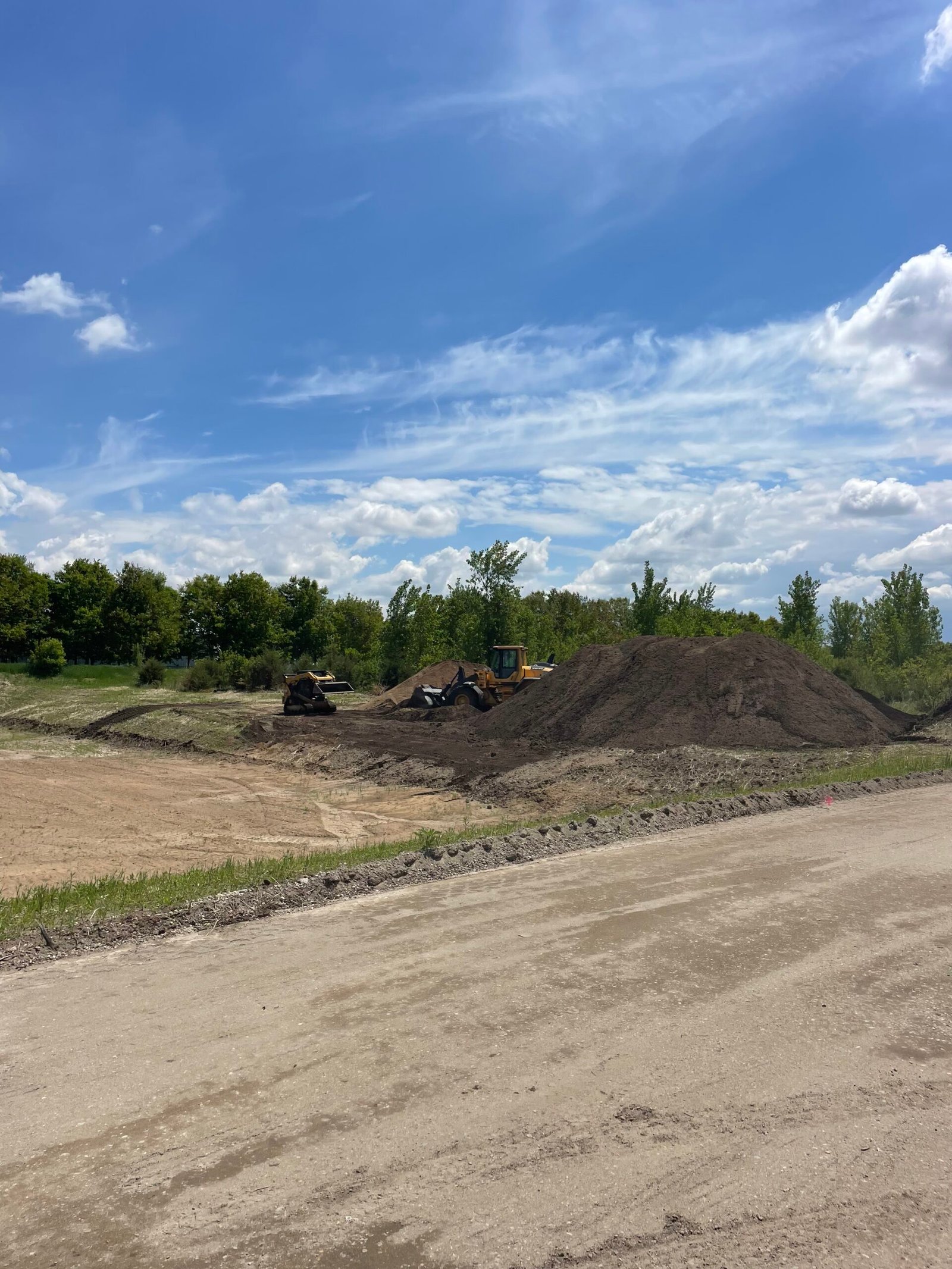
Concrete is poured and waiting for the next available date for paving.

